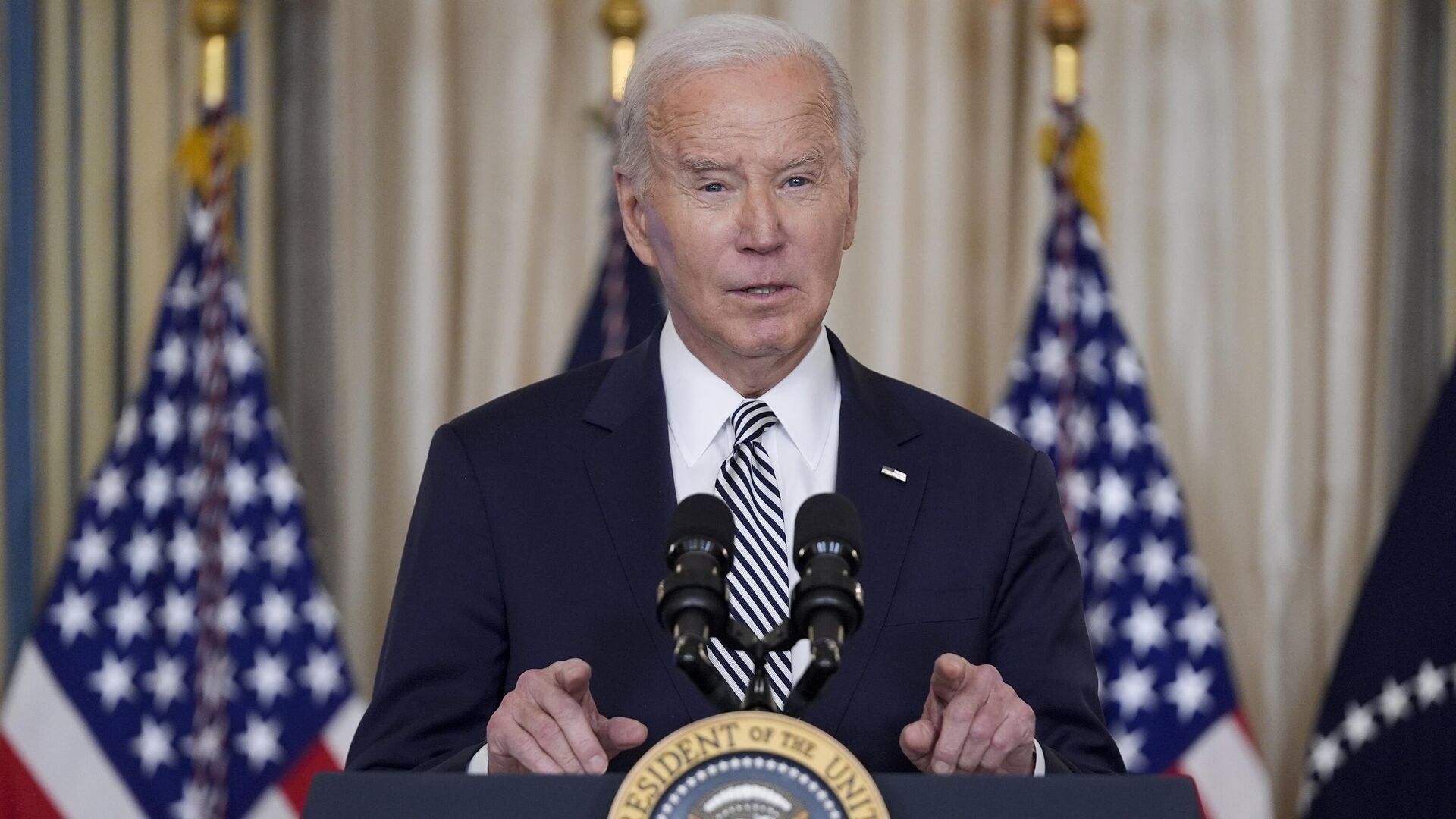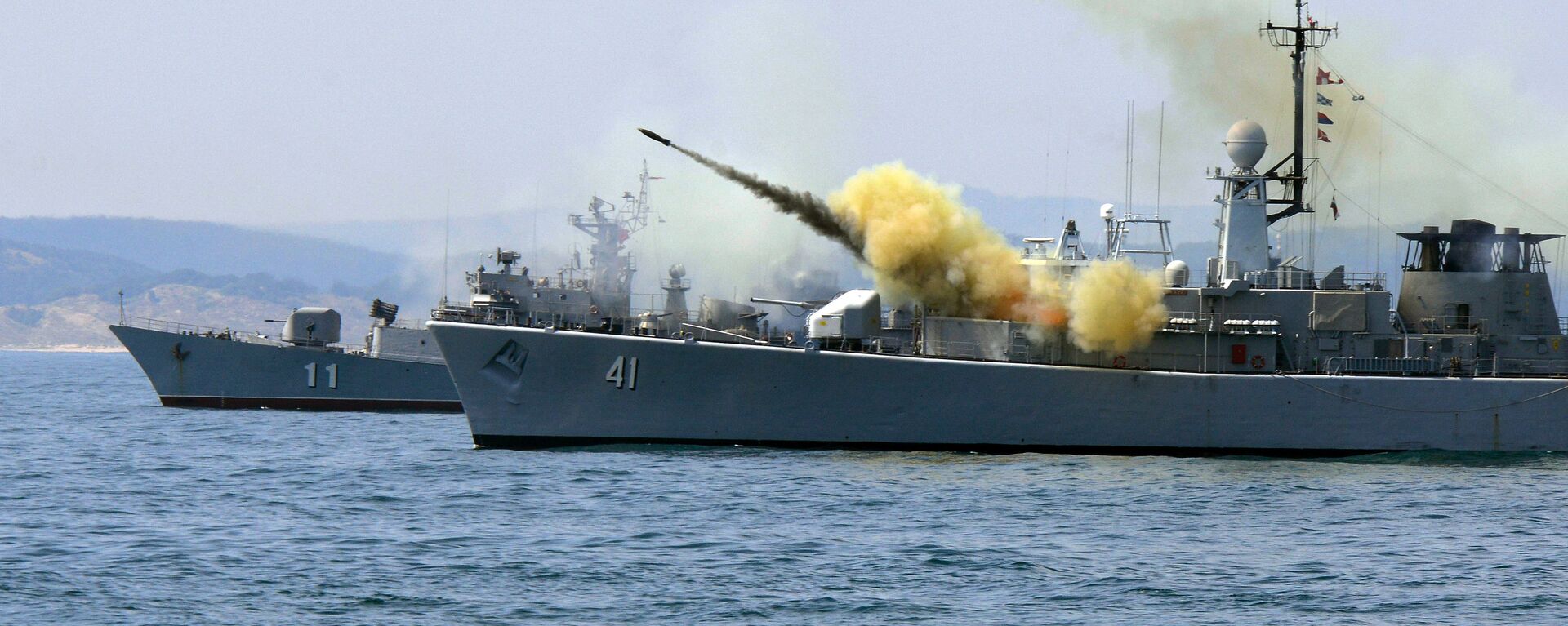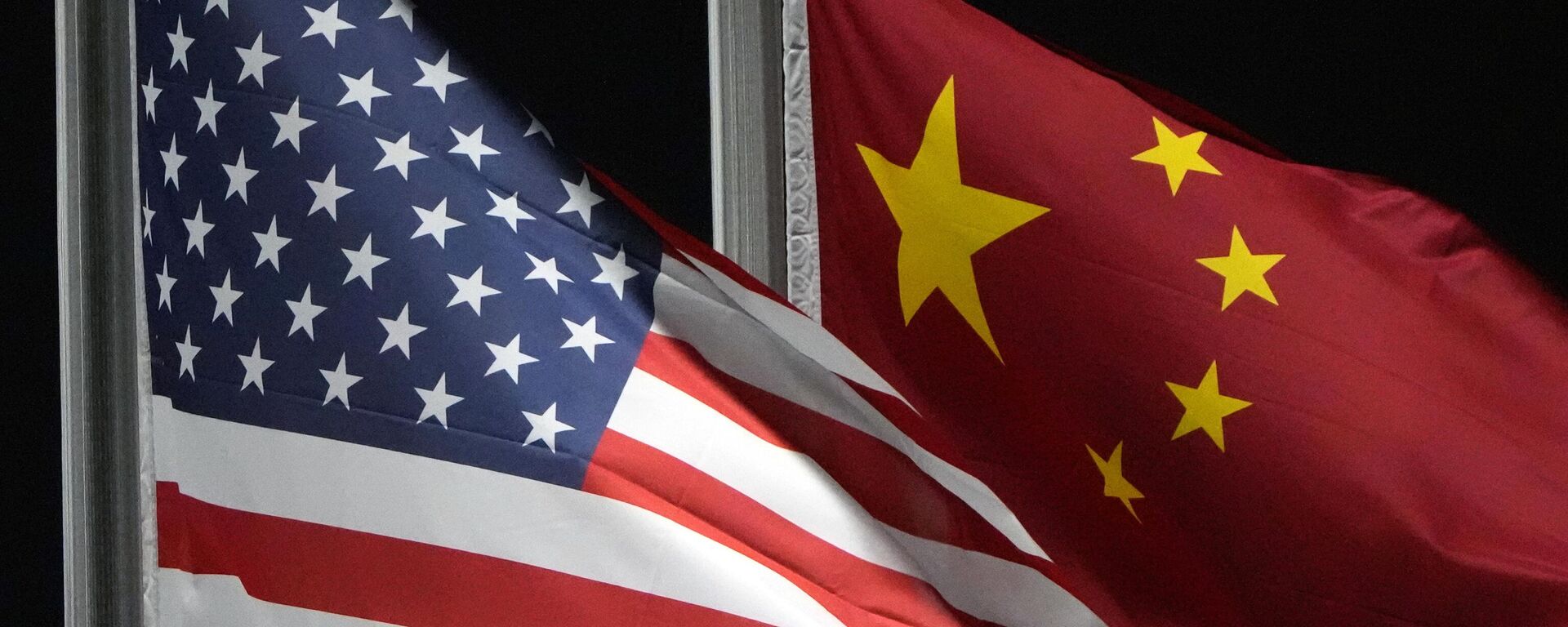Be Wary of Washington Setting Trap in Asia

© AP Photo / Evan Vucci
Subscribe
Asian countries should be wary that a similar trap to the one Ukraine fell into is being set in Asia, and they must be smarter than Europe.
No country in Asia would willingly want to be dragged into the conflict in Ukraine. However, the US is employing similar tactics in certain Asian countries as it did in Ukraine, causing them to be cautious of China and even harbor animosity toward it. Philippine President Ferdinand Marcos Jr has clearly fallen into this trap.
In fact, the situation in Asia is much more complicated than in Europe, as there are numerous disputes over territorial claims as well as maritime rights and interests. Fortunately, there is no NATO in Asia and no geopolitical conflicts between blocs have been formed. Previously, territorial disputes mostly occurred between countries on a case-by-case basis. Suddenly, however, certain countries' disputes and controversies with China have come to the forefront due to the strategic involvement of the US.
In the past, the US generally took a "hands-off" approach when it came to territorial disputes in Asia. However, now whenever a dispute involves China, the US always supports the country that opposes China. It tries to portray China as a regional "bully" and encourages countries in the region to confront China.
In fact, the situation in Asia is much more complicated than in Europe, as there are numerous disputes over territorial claims as well as maritime rights and interests. Fortunately, there is no NATO in Asia and no geopolitical conflicts between blocs have been formed. Previously, territorial disputes mostly occurred between countries on a case-by-case basis. Suddenly, however, certain countries' disputes and controversies with China have come to the forefront due to the strategic involvement of the US.
In the past, the US generally took a "hands-off" approach when it came to territorial disputes in Asia. However, now whenever a dispute involves China, the US always supports the country that opposes China. It tries to portray China as a regional "bully" and encourages countries in the region to confront China.
Nevertheless, the situation between China and the Philippines has been in a deadlock for many years. The Philippine warship that ran aground on Ren'ai Jiao in 1999, the day after the NATO bombing of the Chinese Embassy in Yugoslavia, is still there. China has shown restraint in its dealings with the Philippines, with the friction between the two countries focusing on the details of how the Philippines resupplied the ship. Where in the world can you find such a good-tempered "bully"?
Today, the Philippines is even more shameless. Marcos is trying, with the support of the US, to scare China off with sensational behaviors over the territorial dispute. They have fabricated a false sense of victimhood for themselves.
Marcos' keynote speech at the Shangri-La Dialogue on Friday and US Defense Secretary Lloyd Austin's speech on Saturday are both aimed at cajoling Asian countries. Austin denied on Saturday that NATO's expansion has caused the Ukraine crisis, and trumpeted that the US was secure "only if Asia is." He touted the importance of the extensive network of partnerships under the US Indo-Pacific Strategy, claiming that the US would do its utmost to fulfill its commitments to the Indo-Pacific region.
Today, the Philippines is even more shameless. Marcos is trying, with the support of the US, to scare China off with sensational behaviors over the territorial dispute. They have fabricated a false sense of victimhood for themselves.
Marcos' keynote speech at the Shangri-La Dialogue on Friday and US Defense Secretary Lloyd Austin's speech on Saturday are both aimed at cajoling Asian countries. Austin denied on Saturday that NATO's expansion has caused the Ukraine crisis, and trumpeted that the US was secure "only if Asia is." He touted the importance of the extensive network of partnerships under the US Indo-Pacific Strategy, claiming that the US would do its utmost to fulfill its commitments to the Indo-Pacific region.
Obviously, although there is no NATO in Asia, to serve its global hegemonic strategy of containing China, the US wants regional countries to be hostile to China following the model of NATO allies or partner countries.
As a Chinese media professional who has been observing geopolitics for a long time, I really hope that Asian countries will not be dazzled by the US and will maintain their strategic sobriety. Territorial disputes are left over from history. We have never made use of our vast national resources to solve these disputes, so China is not a "bully," not to mention an "aggressor." However, if countries like the Philippines try to intimidate China with the backing of other powers, they will definitely suffer a setback and face consequences, and at that time the US will not be there to support them.
When Ukrainian President Volodymyr Zelensky arrived at the Shangri-La Dialogue, Asian countries should have seen a nation influenced by the US and NATO, leading to the tragedy of war. Although the US and NATO express support and offer assistance, it is Ukraine and its people who suffer. We must not allow external forces such as the US to set the similar trap in Asia, nor should we fall into the trap ourselves.
This article was originally published by Global Times.



